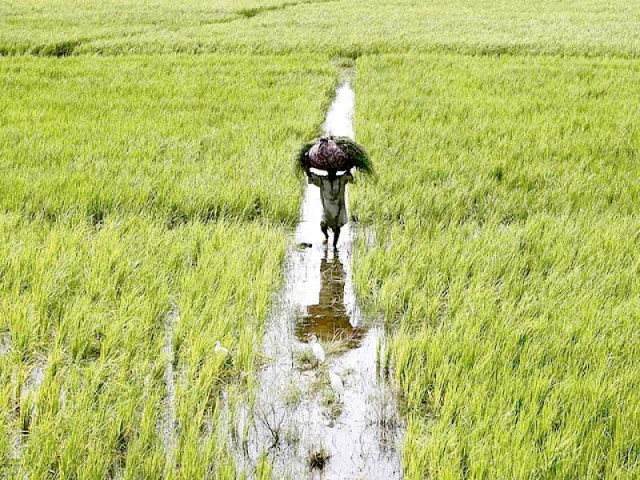PBC asks government to declare agriculture emergency
Says nearly $7b worth of goods are being imported annually for the sector

It has been suggested that the cost of energy should be brought down to the levels required to become globally competitive. PHOTO: FILE
PBC, an advocacy forum for improving general business environment in the country, has written to the government, highlighting several grey areas in the economy in its ‘Charter for Pakistani Industry’ and has also recommended solutions.
PBC has pointed out that by focusing on agriculture on an emergency basis, the government can help increase per-acre yield of major crops, which will also promote employment and exports.
Agriculture sector continues to get incentives
“The distortion created by incentivising the growth of sugarcane and wheat, at the expense of cotton required by the textile industry and oilseeds, … forces imports exceeding $3.5 billion annually,” PBC CEO Ehsan Malik said in the document prepared with an aim to help the government in framing an effective policy framework. The government has been requested to overcome these issues. Pakistan imports $6.14 billion worth of food products and imports raw cotton worth $0.81 billion.
PBC has also asked the government to align its policies. It has suggested to the Economic Coordination Committee (ECC) to establish a task force which, along with the Business Advisory Council, will identify conflicts in existing government policies that cause complexity, raise cost and make it difficult to do business.
“The focus will be on promoting employment, ideally through value-added exports and by encouraging import substitution. It will also identify ways to create a level playing field by broadening the tax base,” Malik said about the proposition.
USDA’s three-day agriculture workshop kicks off
The council has also suggested that all trade agreements should be renegotiated, and future arrangements should ensure maximisation of Pakistan’s value-added exports, creation of jobs and optimisation of tax revenues.
Meanwhile, it has also been suggested that the cost of energy, especially for the export industry, should be brought down to the levels required to become globally competitive. Taxes should be zero-rated for all exports to avoid the need for refund. The tax refunds already accumulated should be settled no later than September 30, 2018 and export rebate should be automated to coincide with the realisation of foreign exchange proceeds. Pakistan also needs to maintain a competitive exchange rate, the PBC said.
The new government has also been urged to facilitate bank credit through credit guarantee schemes, especially in agriculture and for export-oriented small and medium enterprises (SMEs).
Meanwhile, to make CPEC truly a game changer, investment in Special Economic Zones (SEZs) must be promoted, on a “plug and play” basis, for all investors, provided it results in net addition to jobs and positively impacts the external account, it said. Concessions, however, will be tailoured so as not to undermine the industry already established elsewhere in the country.
Published in The Express Tribune, September 4th, 2018.
Like Business on Facebook, follow @TribuneBiz on Twitter to stay informed and join in the conversation.



















COMMENTS
Comments are moderated and generally will be posted if they are on-topic and not abusive.
For more information, please see our Comments FAQ